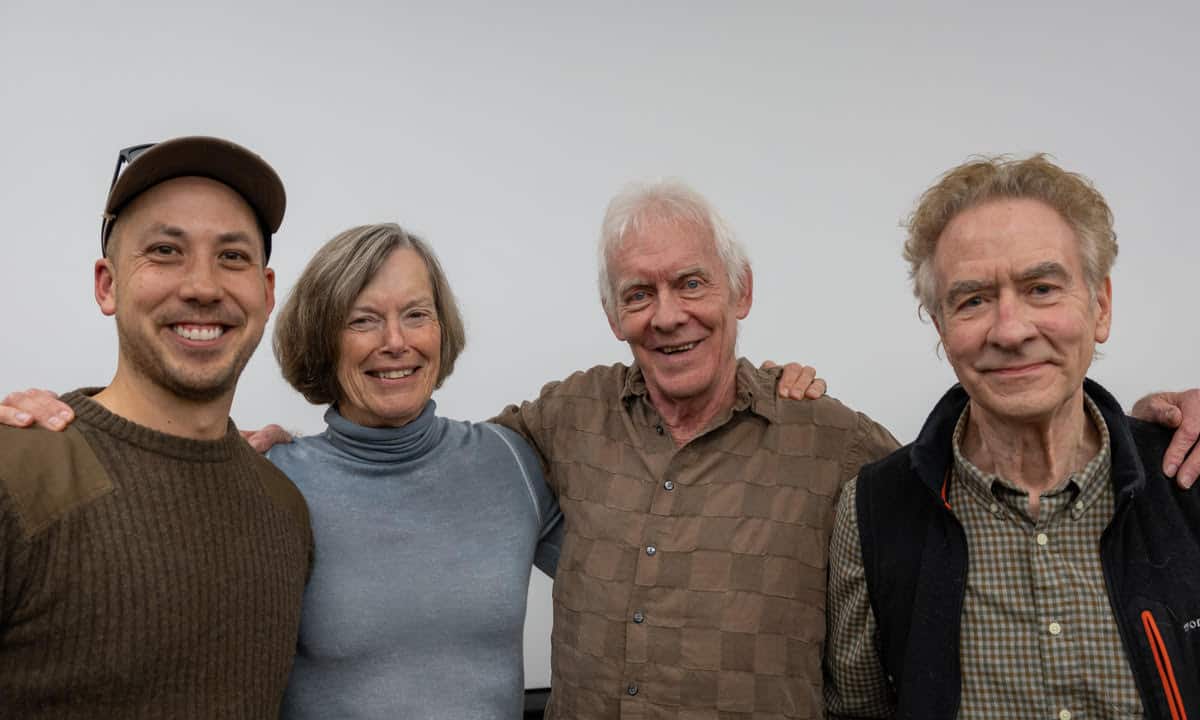
Tribute to our Departing Board Members
I’m thankful for the opportunity to reflect on the tenure of three exceptional people who are retiring from the North Cascades Institute’s board. Dunham, Nan and Gerry joined the Institute during what I think of as our “adolescence.” It was a time of great growth, when we were figuring out how to take the business side of the Institute to the next level around the opening of the Environmental Learning Center. It was before we began the high school, climate and Base Camp programs, and before we began the heart-searching and life-changing organizational work of inclusion and belonging.
They shared and helped direct a period of rapid growth and impact. And we had a lot of fun along the way.
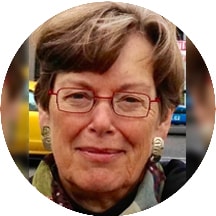 Nan McKay joined in 2008. I first got to know Nan when she oversaw the grants program at the Puget Sound Water Quality Authority. Some of our earliest funding came through that program, and she continued her support through her work at 501 Commons and many other foundations. We served together on the board of the Environmental Education Association of Washington, and it was when she recruited me to follow her as board chair of that organization that we began conversations for her to join the Institute board. Nan always asks the best questions, and has freely shared her knowledge and connections within the Northwest nonprofit environmental community, foundations and elected officials.
Nan McKay joined in 2008. I first got to know Nan when she oversaw the grants program at the Puget Sound Water Quality Authority. Some of our earliest funding came through that program, and she continued her support through her work at 501 Commons and many other foundations. We served together on the board of the Environmental Education Association of Washington, and it was when she recruited me to follow her as board chair of that organization that we began conversations for her to join the Institute board. Nan always asks the best questions, and has freely shared her knowledge and connections within the Northwest nonprofit environmental community, foundations and elected officials.
I owe an incredible debt to Nan for her long service as Board Chair. She became a confidant, a mentor and close friend. I never left a meeting with her when she didn’t ask if there was anything else she could do to support me.
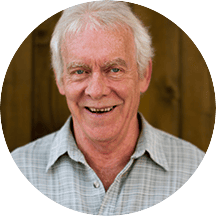 Gerry Cook joined in Nov 2007 as an ad-hoc member, then the full board in 2011. What can I say about Gerry? We’ve known each other long before he got involved with the Institute. He has deep, lived experience with the North Cascades, including as a fire lookout on Sourdough, Desolation and Copper mountains. Gerry also developed amazing skills as a maintenance worker at North Cascades National Park and Captain of the Ross Mule—once the Institute’s floating classroom on Ross Lake.
Gerry Cook joined in Nov 2007 as an ad-hoc member, then the full board in 2011. What can I say about Gerry? We’ve known each other long before he got involved with the Institute. He has deep, lived experience with the North Cascades, including as a fire lookout on Sourdough, Desolation and Copper mountains. Gerry also developed amazing skills as a maintenance worker at North Cascades National Park and Captain of the Ross Mule—once the Institute’s floating classroom on Ross Lake.
His participation on the Skagit Environmental Endowment Commission meant we always had a good friend at the table in that long-standing partnership.
Gerry was the board member most closely-aligned with programs over the years, and he taught several Field Excursions on Ross Lake and beyond. Because of that, he developed a close connection with many of our staff and graduate students. He understood many of their concerns as the Institute grew and changed, and helped the board understand too.
Gerry always said “the Institute and working with those Youth Leadership kids changed my life.” I hope that he knows that he also changed their lives.
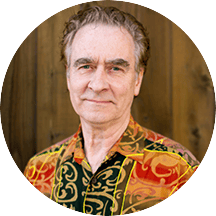 Dunham Gooding joined in November 2002, and served a long tenure through a number of critical challenges. Along with Chuck Robinson and Brian Scheuch, Dunham was one of the first small business owners to join the board. The American Alpine Institute helped define a new type of mountaineering school that taught a strong conservation and environmental ethic alongside hard skills and guided climbs. Dunham understood that the Institute education mission included a strong outdoor recreation component.
Dunham Gooding joined in November 2002, and served a long tenure through a number of critical challenges. Along with Chuck Robinson and Brian Scheuch, Dunham was one of the first small business owners to join the board. The American Alpine Institute helped define a new type of mountaineering school that taught a strong conservation and environmental ethic alongside hard skills and guided climbs. Dunham understood that the Institute education mission included a strong outdoor recreation component.
What I value most about working with Dunham was his early and key support of the value of strategic planning. Dunham pushed us to develop a system for setting, measuring and reporting on annual operational goals that has been a key part of our success.
I also appreciate that Dunham is a Renaissance Man—he values art, language and good wine along with the mission of the Institute.
These three board members have been friends and mentors. They challenged and supported me. They gave me good advice whether I asked for it or not. It’s been a privilege to work with them. I know they will be missed at the Institute, and I know they helped define the trail that will guide the Institute into a strong future.
WHAT DO YOU DO IN YOUR PROFESSIONAL LIFE AND HOW HAVE THOSE SKILLS BEEN AN ASSET TO THE INSTITUTE AND YOUR ROLE ON THE BOARD?
Nan McKay: During my career, I worked in international relations, mental health, journalism, and teaching. My most recent work involved lobbying and policy-making on behalf of local governments in the Northwest, serving as a leader of the state agency responsible for protecting and restoring Puget Sound, developing an environmental sustainability program for a family foundation, and working for a nonprofit that helps other nonprofits in Washington and across the country build their capacity. I fully retired in 2023, although I continue to volunteer for a number of nonprofits.
Perhaps my skills in outreach, facilitation, planning, governance and writing/editing and my work with many nonprofits have been the most helpful to my service on the Institute’s board.
Gerry Cook: I had a 44 year career in the North Cascades: two seasons with the Forest Service, then for North Cascades National Park upon its creation. I wore many hats (firefighting, lookout, trail crew, surveying, maintenance, equipment operating, supervision, and designer/builder). I also was able to work with youth during the summer months for most of my career.
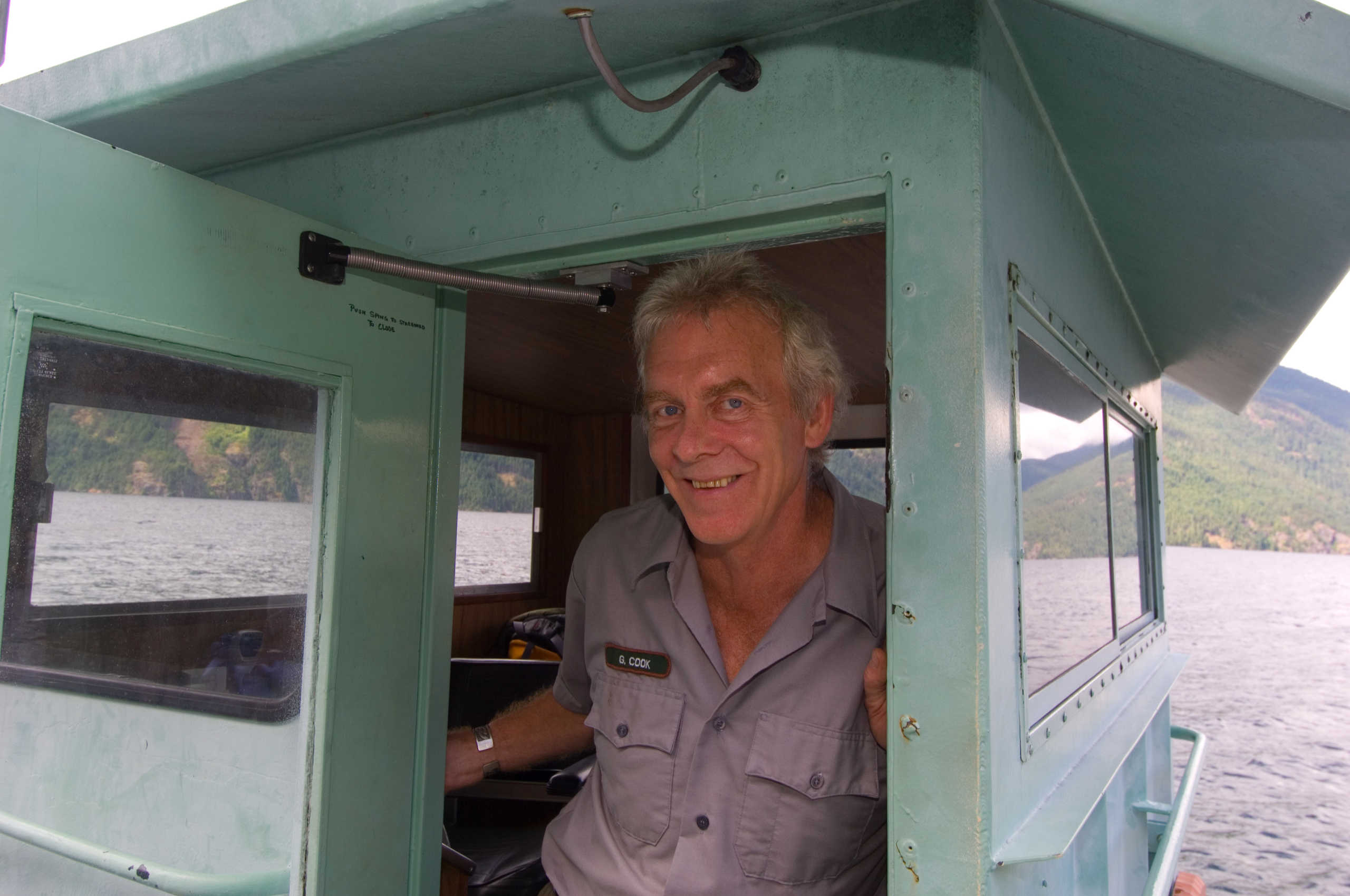
After the gift of the Ross Mule to the park, I converted it into a floating classroom and paired with the Institute to transport and teach youth and adults for 20 years. Using this as background, I could bring to the board an everyday vision of their working programs. During this time I had an intimate knowledge of graduate students, staff and the public. After I retired, all this started changing and my perspectives became broader and more future-oriented.
Dunham Gooding: I had planned to teach literature as a career, but while teaching writing part-time at Western for a couple of years, my wife and I started a mountain climbing school and guide service. After two years, there was a fork in the road, and it was either continue with grad school back East or continue developing American Alpine Institute. The decision wasn’t hard because of the reward in meeting the challenges of running a business and because it was truly uplifting to be taking clients out into the mountains.
For the climbers, there are both technical learning rewards and aesthetic rewards, and for the majority, they experienced what they called the best weeks of their lives. They had enriching and life changing experiences; they were humbled, inspired, and forever tied to caring about the preservation of the natural areas in the world.
In my career, I developed business management skills—including frugality and an ability to stretch the impact of dollars—and absolute knowledge that outdoor programs change people’s lives. This immense and rewarding shaping of human values that I had observed meant that I arrived on the Institute’s board believing that we should never underestimate what we can achieve.
WHAT DREW YOU TO VOLUNTEER ON THE INSTITUTE’S BOARD IN THE FIRST PLACE?
NM: Saul Weisberg asked! I’d been involved with environmental education in Washington state for a number of years—both for professional reasons and because of a strong belief in the importance of educating the next generation of conversation leaders. The Institute’s mission really resonated with me.
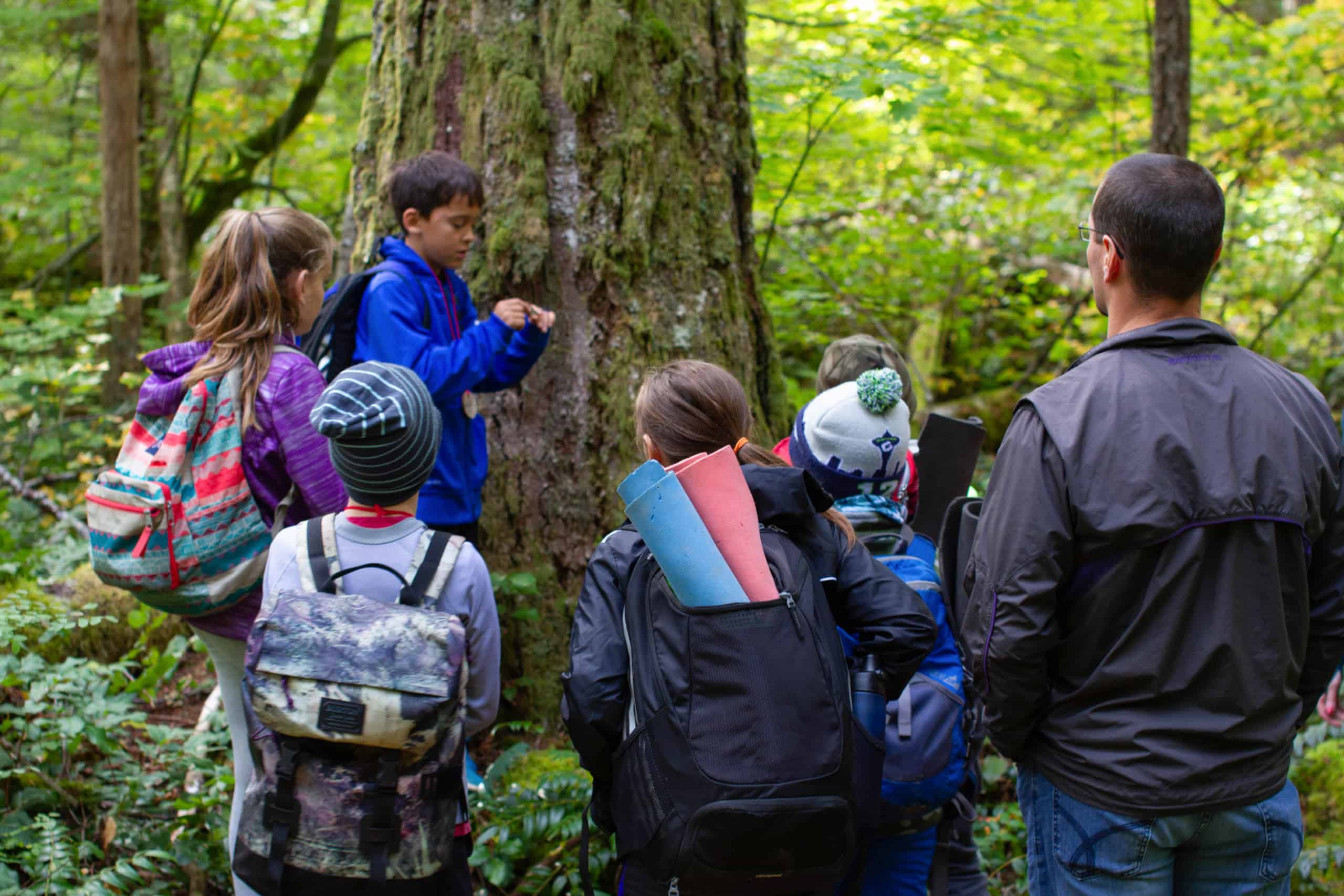
GC: From the day the Institute began, I interfaced with programs like Mountain School, where I would check in on my way home from work, offering help in any way I could to support their needs. This gave me a long-lasting link with the Institute. I began teaching adult seminars as well, like “People of the Upper Skagit” and “Beats on the Peaks.” I had a firsthand knowledge of the place, which is a valuable asset in the big picture needed by a board when place-based learning is at hand.
DG: Institute founder Saul Weisberg and one of the organization’s brilliant founding board members—Jean Gorton—paid me a fundraising visit. I didn’t know about the Institute and what they told me was inspiring. The thought of connecting 700-1,000 school kids to nature each year felt earth-shaking because I knew those connection would be for a lifetime. My company was doing this with adults, but to do it with children, I thought, “What an incredible impact!” I felt eager to learn more about the Institute’s success and how we might encourage or facilitate more of such programs in other parts of Washington and the US.
WHAT MOTIVATED YOU TO STAY ON THE BOARD FOR SO LONG?
NM: The Institute’s board and staff are exceptional. Everyone embraces the practice of collaboration and brings curiosity, enthusiasm and interest in getting positive things done.
GC: I loved both being on the board, and the individual board members. It’s been a stimulating and fun group to learn and grow with. I’ve also felt a personal role as a sounding board for my good friend Saul Weisberg.
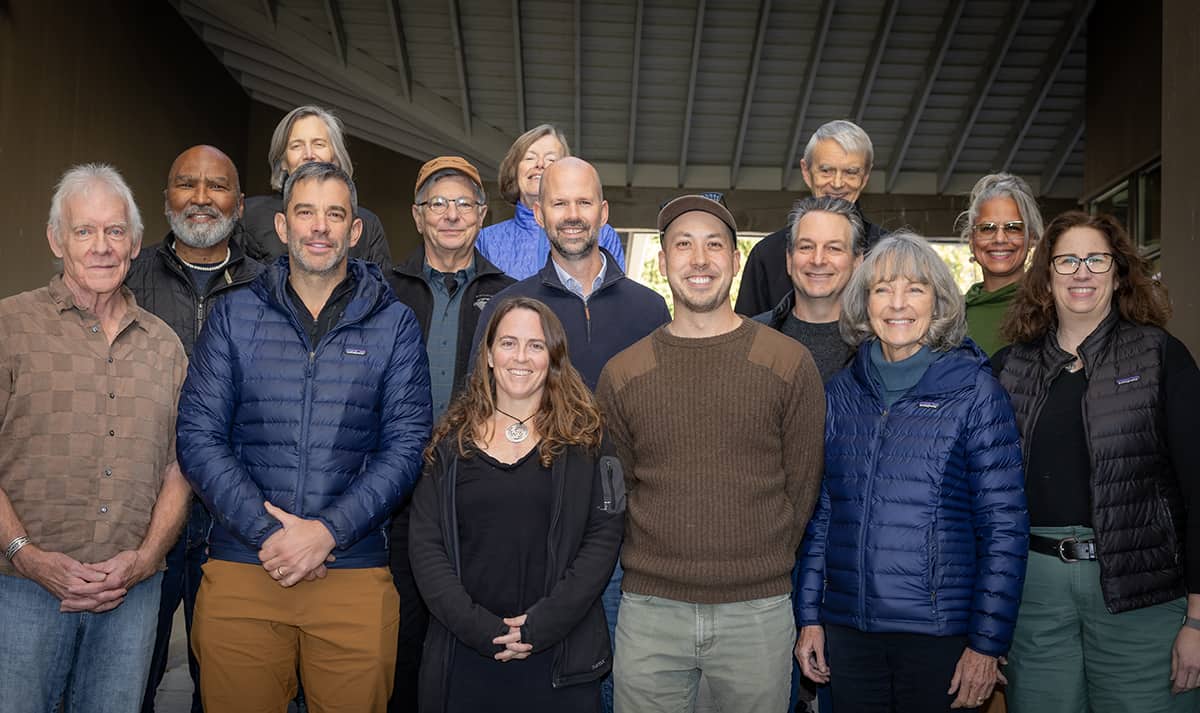
DG: I was excited about expansion of the programs and the training of leaders in the Institute’s M.Ed. Graduate program with skills for running nonprofits and for effectively teaching outdoor education. I felt we needed greater scale in outdoor experiences, education, and commitment to conservation because of the immensity of need to protect our natural environment. As we began to learn more about climate change in the mid-1990’s, this imperative became even more dramatic and time sensitive. The magnitude of the problem and the challenge to us has only increased since then.
WHAT CHANGES AT THE INSTITUTE OVER THE PAST DECADES HAVE EXCITED OR INSPIRED YOU THE MOST?
NM: The opening of the North Cascades Environmental Learning Center, growing attention to climate resiliency, and a successful transition from Saul Weisberg (the founder and long-time executive director) to Bec (the current executive director).
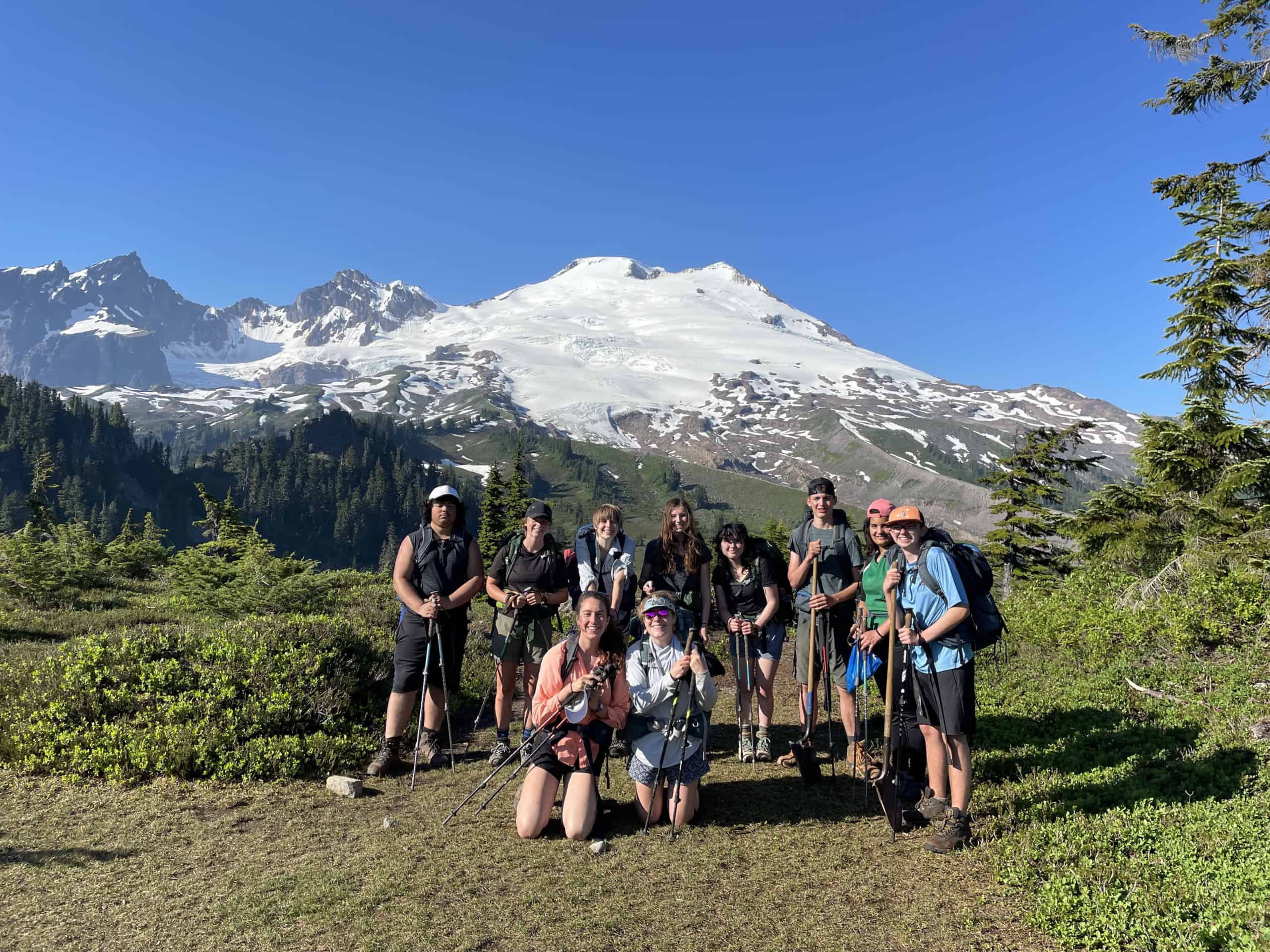
GC: The M.Ed. Graduate program and the diverse youth in the Youth Leadership Adventures program. The Grad program brought creativity, energy, and an overall vitality to the atmosphere of the Institute. The youth programs exposed many first-generation Americans to the wilderness ethic, and in a personal way brought the world to me. I always got back more than I gave.
DG: The steady expansion of enrollment is not glamorous, but it has been hugely important in terms of real impacts on protecting our environment through the works of our inspired students, both youth and adults. Second, the establishment of an endowment which helps assure the organization’s permanency. Third, a steadily-growing ability to hire inspiring staff members.
WHY DO YOU BELIEVE THAT ENVIRONMENTAL EDUCATION AND GETTING STUDENTS OUTSIDE IS SO IMPORTANT?
NM: Our world faces many escalating environmental challenges, and we need all-hands approach to address them. Environmental education—done well—provides multiple ways to learn about one’s place (large and small), inspires participants to care about their places, and offers them actions to put that care into practice. Teaching people (young and old) about their environment in that environment often has a transformative and lasting effect. My hope is that we are inspiring and thoughtfully educating young people who will help to lead us into the future with a firm commitment to care for their—and our—environment.
GC: In an increasingly digital world, It has become indisputable that being outdoors is beneficial to one’s well being. I have personally witnessed hundreds of young adults experience life-changing moments by exposure to the natural world.
WHAT IMPACTS YOU HAVE HAD ON THE INSTITUTE ARE YOU MOST PROUD OF?
NM: Supporting staff and improving governance.
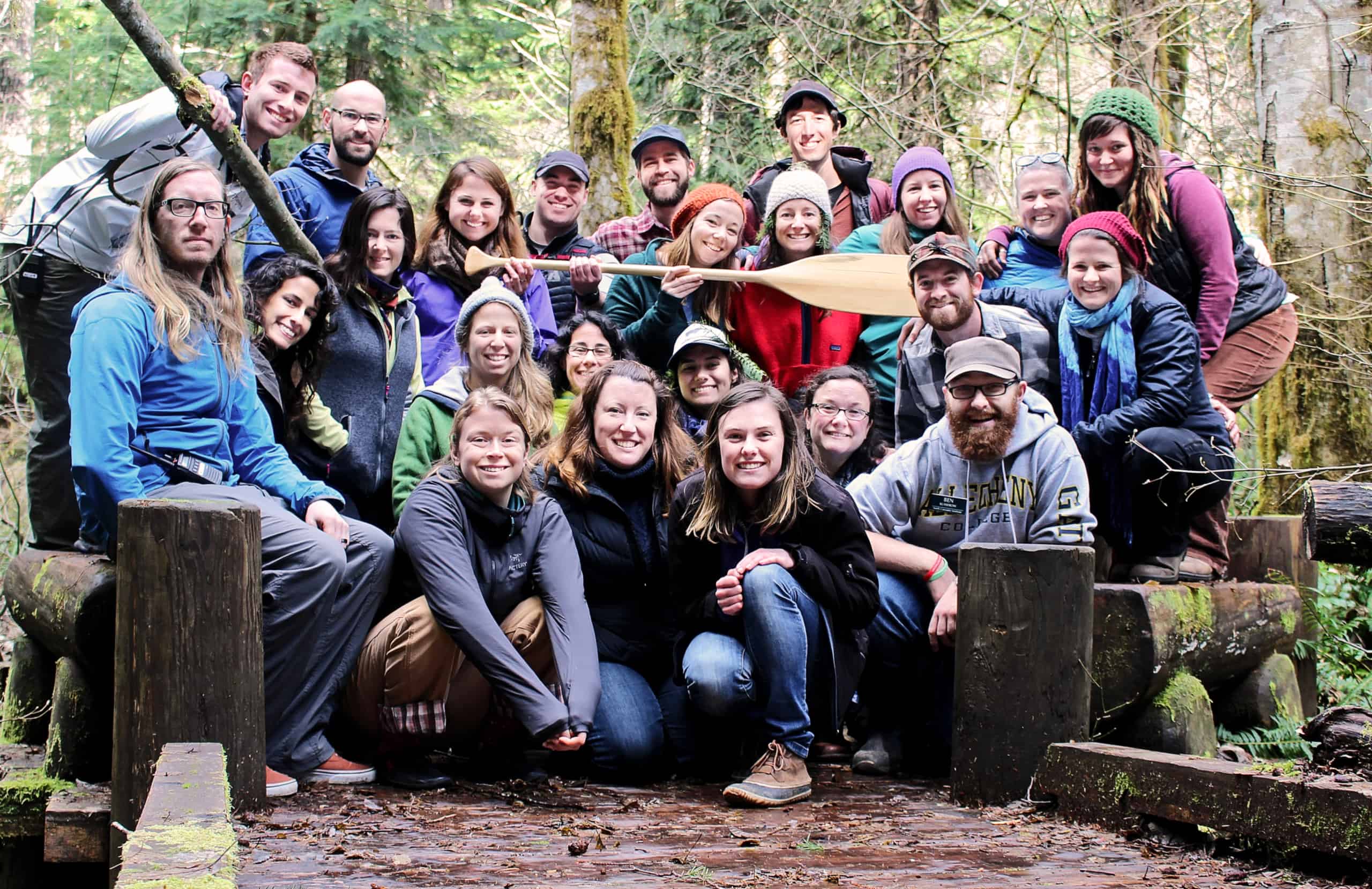
GC: Teaching on the Ross Mule: the Mule became a symbol of unity between the North Cascades National Park, the Institute and Seattle City Light. It was used for teaching people of all ages, for transporting youth groups up and down the lake, for bringing potential donors to have “a day of a lifetime”, and to engage grad students.
First board representative on the EDI Committee (now Welcoming Committee): The Equity, Diversity and Inclusion/Welcoming and Accessibility Committee was formed out of concern for the organization’s future in a changing world. I am proud to still be serving on this committee and slowly changing the Institute’s culture of welcoming and accessibility.
DG: Prior to joining the board, I had successful experiences in my own business and in nonprofits using the management triumvirate of strategic planning, operational planning, and budgeting to achieve mid- and long-term goals, in addition to immediate ones. In nonprofits, I found that the inseparable linkage of the three also maintained clear and positive relations between boards of directors, CEOs, and senior staff.
At the time I joined, the Institute was a very healthy organization, but the board embraced the planning system, I think especially because the first part pushes board members to move beyond “the tried and true” programming and to plan for the organization in a visionary way. “We’re doing great, but what are the other major possibilities?” one might ask. We did ask and followed through.
WHAT ARE YOUR HOPES FOR THE INSTITUTE’S WORK IN THE NEXT TEN YEARS?
NM: I hope that the Institute sticks to its mission but is creative, adaptive and strategic about how to meet that mission. I’d like to see our programs serve more people but not at the expense of the quality of those programs.
GC: I hope for a better partner relationship between the Institute, North Cascades National Park, Seattle City Light, and the tribes. I hope for another campus close to the saltwater, giving us a mountains-to-sea profile. I’d like to see the Institute pursue the possibility of a new grad program. I would like the Institute to take its message to the local community, especially the schools.
DG: Teach more students every year. Develop a second campus for expanded teaching for both youth and adults. Resume our graduate program with the specific goal of training capable students to develop outdoor education curricula and manage outdoor education organizations.
Nan, Gerry and Dunham—we thank you for contributing so many chapters to the good story that is North Cascades Institute!
We’re also grateful for the impacts that Board Members Michael Liang, Maureen Ryan and Priya Nanjappa have had on our organization and our work. We wish them well as they head off on other adventures and impacts!
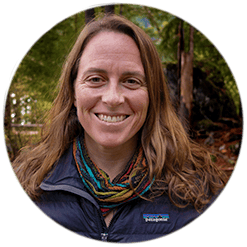 Maureen Ryan first got involved with the Institute as a Mountain School intern in 1997 (during the days of the Big Green Tent!). She joined the board in 2017 and served as Co-Chair of the Welcoming & Accessibility Committee since 2018. With her vast background in science, conservation, facilitation, mindfulness, arts and culture, Maureen brought a multidisciplinary approach that helped the Institute become more inclusive and intentional.
Maureen Ryan first got involved with the Institute as a Mountain School intern in 1997 (during the days of the Big Green Tent!). She joined the board in 2017 and served as Co-Chair of the Welcoming & Accessibility Committee since 2018. With her vast background in science, conservation, facilitation, mindfulness, arts and culture, Maureen brought a multidisciplinary approach that helped the Institute become more inclusive and intentional.
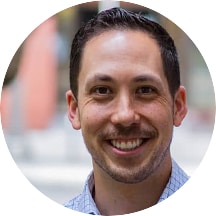 Micheal Liang first got involved with the Institute while working as an Interpretive Ranger for North Cascades National Park in 2005. He joined the board in 2021 and served on the Welcoming & Accessibility Committee for the past three years. His creative approach along with his rich background in nonprofit leadership, government experience, marketing and communications helped inform many important decisions and strategies.
Micheal Liang first got involved with the Institute while working as an Interpretive Ranger for North Cascades National Park in 2005. He joined the board in 2021 and served on the Welcoming & Accessibility Committee for the past three years. His creative approach along with his rich background in nonprofit leadership, government experience, marketing and communications helped inform many important decisions and strategies.
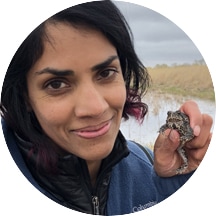 Priya Nanjappa joined the board in 2021. With her 20+ years of experience in conservation science, policy, strategic and operational management, she brought a collaborative approach that helped build our connections and strategic partnerships.
Priya Nanjappa joined the board in 2021. With her 20+ years of experience in conservation science, policy, strategic and operational management, she brought a collaborative approach that helped build our connections and strategic partnerships.


Thanks to each of you for your incredible insight, strategy, skill, and time that you devoted to North Cascades Institute’s board and to the passion you each have for our mission!
What a great article to recognize their collective community service – thank you! What did the term limit become?